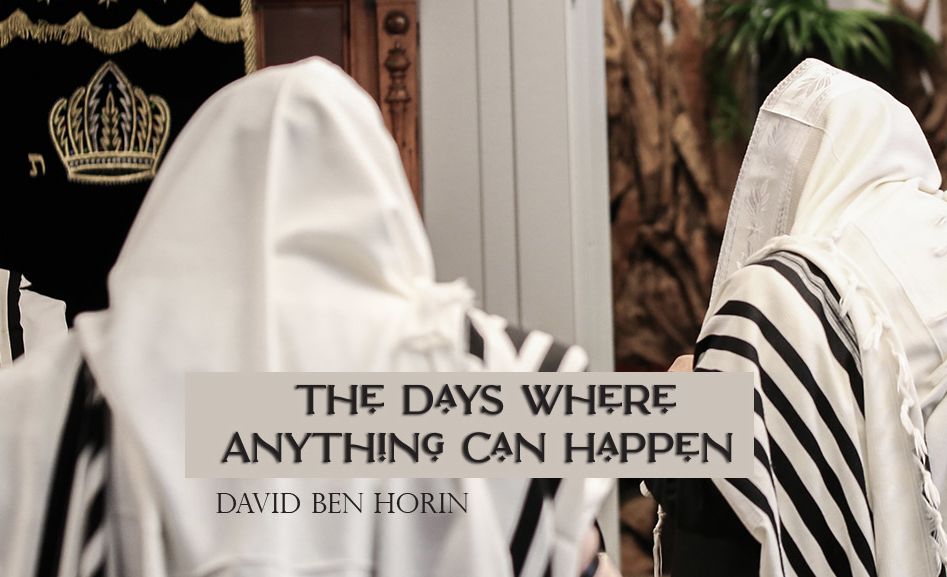
In Order, Out of Order
The concept of “out of order” means that things are not functioning the way we want them to. What can we possibly do to get them back “in order”?

Translated by Rabbi Lazer Brody
Our holy Rebbe Nachman teaches us a seemingly simple but vital principle in life (see Likutei Moharan II:82). Sometimes life proceeds according to our plans and aspirations; this is what Rebbe Nachman refers to as “in order,” when life progresses they way we would like it to. Other times, which is frequently the case with many people, life goes erratic, as if completely out of our control. Things don’t proceed the way we planned and certainly not according to our wishes. Rebbe Nachman calls this the “out of order” mode. So what can we possibly do to get things back in order if they’re haywire? The solution according to Rebbe Nachman is to do teshuva and to deflate our ego.
Simpler said than done? We all know what teshuva is, repenting and “coming back to Hashem.” But what  does it mean to deflate our ego?
does it mean to deflate our ego?
Thank goodness for Rebbe Natan; we could not understand Rebbe Nachman were it not for his prime disciple Rebbe Natan, who we must thank for preserving and elaborating on all of Rebbe Nachman’s teachings. Rebbe Natan elaborates on the above principle of “in order” and “out of order”, teaching us the normal progression of life depends on the quality of a person’s Rosh Hashanah (see Likutei Halachot, Netillat Yadayim Shacharit, 3:5), as follows:
The first three letters of the Hebrew month of Tishrei are ת (taf), ש (shin) and ר (resh). These are the last three letters of the Hebrew alphabet in reverse order. Rebbe Natan says that since “aleph, bet and gimel” are the first three letters of the Hebrew alphabet in order, then “taf, shin and resh” the last three letters in reverse represent the “out of order” mode of life. In that manner, the month of Tishrei is symbolic of the “out of order” mode.
Rebbe Natan emphasizes repeatedly that a person’s life goes haywire in the “out of order” mode because of his inflated ego, or simply speaking, his arrogance. Once a person truly repents and feels his nothingness – that he is absolutely nothing without Hashem – then life falls “in order” again. In that vein, the most important aspect of teshuva is when a person totally subdues his ego and submits himself to Hashem.
The Gemara in tractate Sota says that arrogance is tantamount to idolatry; elsewhere, in tractate Chulin, the Gemara says that idolatry is outright heresy, which is easily understandable. Combining both concepts, arrogance is outright heresy, for a person with an inflated ego holds himself superior to Hashem, heaven forbid. The arrogant person is in effect making a statement, “I shall rule; I shall be king.” Since he tries to grab the monarchy for himself – and he is of course incapable of running the world – his life goes haywire, “out of order”. To put things back to normal, he must do teshuva, deflate his ego, and submit himself to Hashem.
What does all this have to do with Tishrei, Rosh Hashanah, and Uman?
Rosh Hashanah is the annual coronation of The King, when we crown Hashem. If a person thinks he’s the king, then he can’t crown the real King. So, the purpose of Rosh Hashanah is to give us a unique opportunity to rid ourselves of arrogance so that we can participate in the crowning of Hashem. Therefore, our main task on Rosh Hashanah is to rid ourselves of arrogance so that we can participate in the Royal Coronation. The more we submit ourselves to Hashem, the more we reveal His monarchy. We do this by throwing away our own feeble logic and connecting ourselves to Divine wisdom in innocence and in simplicity. This also brings us to enhanced emuna.
“Rosh Hashanah” was a gift that Hashem gave to Rebbe Nachman. The main coronation is therefore in Uman; that’s why Rebbe Nachman told us ish baal ye’aderr, no one should be missing! In Uman, we learn what true humility is. Who can possibly be arrogant in front of Rebbe Nachman’s holy grave site? Uman is conducive to teshuva, for the Rebbe helps every earnest truth-seeker to attain his soul correction. The result? After Uman, we suddenly see that everything Hashem does is for our ultimate benefit. We stop struggling against Hashem’s will. The “out of order” suddenly becomes “in order”. That’s the call of the shofar, to signify our new year and new beginning when, with emuna, we see that Hashem does everything in perfect order. I hope to see you in Uman on Rosh Hashanah. May Hashem bless you!












Tell us what you think!
Thank you for your comment!
It will be published after approval by the Editor.